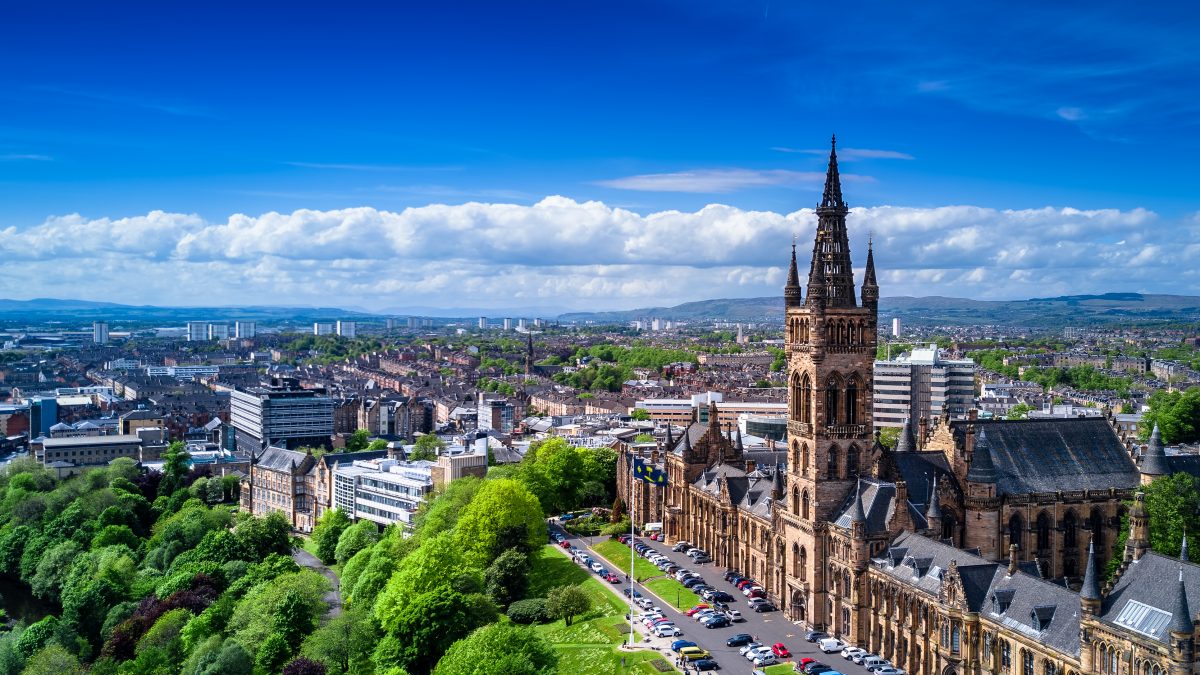Glasgow has launched an economic strategy in preparation for key future challenges set to “disrupt our way of life”, including technological advances, the climate emergency and the impact of Covid-19.
The ‘city region’ plan is expected to have a “profound impact” on wider public sector policy, decision-making and spend over the next 10 years for the local area of 1.8 million residents and 50,000 businesses.
The approach has been developed by the region’s eight councils and government and wider public sector agencies including Scottish Enterprise and Skills Development Scotland.
It follows months of extensive research with input from partners across the councils, government agencies, local universities, the business and third sectors.
It is underpinned by an “in-depth” analysis of the region’s strengths and the current and future challenges faced – collectively and individually by the eight council areas of Glasgow, East Dunbartonshire, East Renfrewshire, Inverclyde, North Lanarkshire, Renfrewshire, South Lanarkshire and West Dunbartonshire.
It found that transformative advancements in technology over the next decade will reshape some of the region’s largest industries, including health, energy, manufacturing, retail, and transportation.
It said that whilst this will offer opportunities for productivity growth, it could also lead to significant disruptions – changing the nature of some jobs, tasks, and business processes.
Susan Aitken, chairman of the Glasgow City Region Cabinet and Glasgow City Council leader, said: “Over the next 10 years, the Glasgow City Region economy will be increasingly shaped by incredible technological advancement and the imperative to achieve net zero. There will be challenges but also generational opportunities.
“Our new regional economic strategy recognises where our strengths lie, how we compare to other major regions and the key issues faced collectively by the region and its eight partner councils.
“It brings clarity to our priorities and informs decision-making around issues of place, skills and health, and how to achieve net zero in a way which also delivers inclusivity, growth and prosperity.”
Three key regional challenges are woven through the strategy:
- The “imperative” to address the climate emergency
- The need to create a “much more inclusive” economy
- The “long-standing” issue of low productivity has “constrained” the local economy
Twelve initiatives are anticipated in the coming months, including proposals to establish a regional investment fund; programmes for fair and healthy work; green business support; and a green demonstrator for electric vehicle charging.
A future towns and city scheme will use the “latest data technology” to understand shifting demands on town centres to support policy development.
Finally, a foundational economy pilot will support growth and innovation in a sector which makes up 60 per cent of the region’s jobs and 40 per cent of its businesses.
Aitken added: “Transformation will of course require significant investment. Whether it is creating the conditions for the likes of Barclays to bring thousands of jobs, or our innovation districts, we’ll continue to find new ways of bringing in investment into our communities and business base.
“We are – as ever – ready to work with all partners to deliver this new ambitious Regional Economic strategy.”
A vision has also been set out that, by 2030, Glasgow City Region will have “the most Innovative, Inclusive and Resilient Economy in the UK”.
In addition, opportunities have been identified which could “transform” the region, including a focus on the foundational economy and high growth sectors and addressing climate change.
Iain Stewart, UK Government Minister for Scotland, said: “This is an ambitious plan with a focus on sustainability and creating opportunity throughout.
“The UK Government is working closely with the Glasgow City Region partnership and will continue to support their goals through its regional investments.
“We are delivering more than £1.7 billion for projects across Scotland, helping to level up communities.”
Ivan McKee, Scottish Government trade minister, said: “This strategy puts the 1.8 million residents of the Glasgow City region at its heart, delivering opportunities to grow and recover from this very challenging period for businesses and workers.
“The Scottish Government supports the strategy’s mission to advance a just transition to net zero, creating a more inclusive economy focused on improving productivity and wellbeing.
“This strategy showcases what can be achieved when a region works together as a partnership, coming together to focus on recovery from the pandemic and the impact of Brexit. I have every faith that regional partners will continue to work together to deliver a positive impact over the next decade as we help create a fair and prosperous economy for all.”
Stuart Patrick, chief executive of Glasgow Chamber of Commerce, said: “On behalf of the business community, I warmly welcome Glasgow City Region’s outlined economic strategy as a progressive, ambitious and carefully considered statement of intent.
“With innovation at its very core, this strategy will ensure that Glasgow’s entrepreneurs, business community and research universities are well-equipped to approach enthusiastically the opportunities which both net zero and artificial intelligence present.
“Glasgow City Region is an economic powerhouse, and it is reassuring that the strategy explicitly recognises the extensive role that our business community plays in the city.”
In delivering the strategy, a series of programmes will be taken forward, some of which are already underway and some which require further development.
Work will now take place by the City Region to develop a detailed action plan over the next six months which will assign ownership of actions across the member councils and wider partnership, with indicative costs, and framework for monitoring and evaluation.




